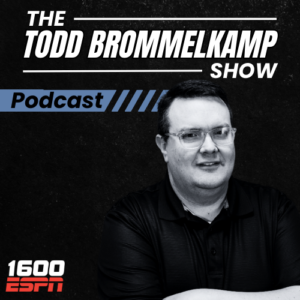Todd Brommelkamp / 1600 ESPN
If you were listening to me Wednesday morning, you may have heard me talking about the great time my family and I had at a pair of Cedar Rapids Kernels games late last week.
We spent both Friday and Saturday night at Veterans Memorial Stadium watching the Minnesota Twins farmhands defeat the Lake County Captains both nights. Friday’s game featured 2-for-1 beers and an inside-the-park home run, which, if you took too much advantage of the former, you may not recall the latter.
Saturday night, as we watched the game unfold from the left field pavilion while enjoying the all-you-can-eat-and-drink menu, I couldn’t help but reflect on how much the minors have changed in recent years.
Minor League Baseball has existed for almost as long as Major League Baseball, and the current system of teams affiliating with big league clubs has been around for over 100 years. Major changes, first floated after the 2019 season, altered the landscape of the minors following the COVID-19 pandemic in 2020. Major League Baseball took over the day-to-day operations of MiLB prior to the 2021 season, booting more than 40 cities from the ranks of the affiliated and locking teams into 10-year marriages with Major League teams.
Two of the cities that lost their affiliated status are Clinton and Burlington, Iowa. I grew up going to games in Clinton, beginning with a single game in 1988 when my parents grabbed three free tickets to a game against the Peoria Chiefs. We went to a pair of games the following summer and, in 1990, pushed the attendance number near double digits. I have a framed black and white photograph of my favorite player from the 1990 Clinton Giants, a slugging first baseman named Joey James, on the wall next to my desk.
Back then, the majority of players would spend the season with one affiliate. Teams often held “Camera Day” during the final home stand of the year, allowing fans on the field before the game to take pictures with their favorite players. Today, players zoom through multiple levels per season on a fast track to “The Show,” and some are gone before they’ve even unpacked their lockers.
Jac Caglianone, the Kansas City Royals’ top prospect, who made his MLB debut Tuesday, was drafted sixth overall a year ago and assigned to the Quad Cities River Bandits. He played 29 games for the Bandits before heading to the Arizona Fall League, a sort-of finishing school for prospects once the season ends. This year he began the season at Double A, where he played 38 games before a two-week cameo in Triple A put him on the brink of the big leagues. That’s 315 at bats (Mike Trout needed 1,117 at-bats before the Angels were comfortable handing him center field on a full-time basis). Granted, Caglianone is an elite prospect, but his rapid advancement through the farm system isn’t as rare as it once was.
The minors, like many businesses, have been streamlined in the name of efficiency. If you were paying attention in October 1985, Dusty Rhodes warned us all about this heartless world we now inhabit.
Some, myself included, feel MLB commissioner Rob Manfred isn’t done remaking MiLB. Another round of contraction could be on the horizon in about five years when the initial 10-year affiliate agreements, like the one signed between the Twins and Kernels, are set to expire.
If it happens, they’ll do just like they did in Clinton and Burlington, replacing future major league players with an assortment of college-aged players, most of whom will see pro ball the same way you and I do, by purchasing a ticket. They’ll say baseball is baseball, the beer is still cold, the hot dogs still tasty.
I didn’t buy it in 2020 and I don’t buy it now.
Try getting an autograph or a foul ball at a minor league baseball game in 2025, and the experience will feel a lot more big league than it will mom-and-pop. COVID-era protocols keeping fans at a distance never went away following the pandemic. That was by design. In the eyes of Manfred and the millionaires he serves, players aren’t in places like Cedar Rapids or Des Moines to connect with fans and grow the game; they’re workers assigned to keep their noses to the grindstone.
Talk to folks who work in Minor League Baseball and they’ll tell you it isn’t the same as it used to be, either. Players are no longer compelled to make as many community appearances as they once did, like going to elementary schools and promoting summer reading programs or helping out at area nonprofits. Those 10-year contracts binding minor league teams to big league clubs place all the power in the hands of the major league teams. There’s only room for give-and-take when it’s the parent club doing the taking. Minor league teams continue to be saddled by costs once covered by their affiliates, making operating on a razor-thin margin all the harder. That has led to a large private firm, Diamond Baseball Holdings, buying up roughly one-third of MiLB teams nationwide. (The Iowa Cubs are one of roughly 40 teams owned by DBH.)
Can you see where this is going? Community-owned teams like the Kernels are fighting a battle they know they can’t win. It’s not hard to envision a day where MLB takes control of Diamond Baseball Holdings, making sure it’s the entity profiting from baseball and not some soulless private equity group. Once that happens and MLB has total control over much of MiLB, the final dominoes will fall.
More cities will lose affiliated baseball. Jobs will be lost. City-funded stadiums will eventually sit empty and fall into disrepair. Future generations will never know the joy of watching Mike Trout play in an All-Star Game and recalling the time they met his parents and the mayor of his hometown in A-ball.
Back to Friday and Saturday: Baseball was played. The beer was indeed cold. The hot dogs were tasty. For most in attendance, that’s all that mattered. Most wouldn’t even remember the final score if you asked them on the way to their cars.
Manfred crowed to anyone who would listen that contracting the minor leagues after 2020 was in the best interest of the game. He longs for “One Baseball,” in which MLB controls aspects of the sport from the youth levels up to the majors, and he’s succeeding.
Minor League Baseball is now that in name only. You can decide whether that’s a good thing or not.
Todd Brommelkamp is the host of “The Todd Brommelkamp Show” and can be heard weekdays on 1600ESPN from 6:30 to 9 a.m.
